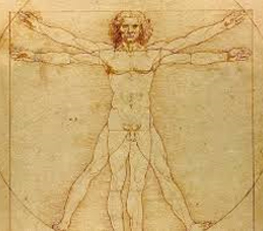(11-06-2018) Gut bacteria play a role on how your dietary changes affect your blood pressure
(Natural News) It’s already known that our diets contribute a lot to the development of diseases such as high blood pressure and that changing it is the first step toward mitigating that risk. However, according to researchers from the U.K. and the U.S., a person’sgut bacteria is also a factor in the effectiveness of his dietary change. The results of the study were published in the American Journal of Clinical Nutrition.
The research team, led by Dr. Rue Leng Loo of the University of Kent, pooled participants who followed three healthy diets which reduced their blood pressure readings. However, they found out that not all participants responded well to the diet plan.
An examination of bacterial metabolites in the urine pointed out a likely culprit: There were differences in the composition of their gut bacteria.
“Variation in metabolic phenotypes in response to specific healthy diets may hold clues as to the mechanisms underlying interindividual variations in response to dietary modulation and points to the potential importance of the gut microbiome in accounting for differences in dietary response and the subsequent impact on [blood pressure],†the authors wrote in their report. “The workflow presented here provides a clinically actionable framework to develop tailored dietary interventions designed to reduce [blood pressure] and other [cardiovascular disease] risk factors.â€
High blood pressure, also known as hypertension, is the statewhere the force of your bloodpushes against the blood vessel walls at a consistently high level. This could lead to more severecardiovascular diseases, which include heart failure, heart attack, and stroke, and even affect other functions such as that of the kidney and the reproductive organs. Coupled with plaque buildup in the arterial wall, this can not only damage the arteries but also lead to severe complications, even death.
The study included three variations of the DASH diet
For the study, a research team from Imperial College Londonand John Hopkins Universityin the U.S. collected at least 160 urine samples from participants with pre-hypertension and stage 1 hypertension at the beginning of the clinical trials.
They were then subjected to three so-called OmniHeart diets, which have similar nutrient compositions with theDietary Approaches to Stop Hypertension(DASH) Plan, save from some variations in macronutrient composition. To note, the OmniCarb diet had a 58 percent kcal from carbohydrate, 15 percent from protein, and 27 percent from fat; the other two diets took 10 percent of calories from carbohydrate and added it either to proteins or monounsaturated fats. Individuals were randomly assigned to the diets and were advised to stick to their plans for six weeks. Samples were then collected after six weeks for analysis.
Based on the results, all three diets resulted in similar changes in the urinary metabolic profiles of most of the participants, with the exception of some. In particular, the team found out that blood pressure is associated with six urinary metabolites that were found in the diet. (Related: How gut bacteria can make you fat, or help you lose weight.)
According to the researchers, this adds more weight to evidence that claims gut microbiota can influence blood pressure. This data, they add, could be used in future studies by diabetologists, cardiologists, and dieticians as they look for new approaches to understanding how a person responds to certain types of diets, as well as checking their adherence.
Find more about how to better take care your heart by heading to Heart.newstoday.
Sources include:
NutraIngredients.com
Heart.org
News
In evidenza
 "L'informazione presente nel sito serve a migliorare, e non a sostituire, il rapporto medico-paziente."
"L'informazione presente nel sito serve a migliorare, e non a sostituire, il rapporto medico-paziente."
Per coloro che hanno problemi di salute si consiglia di consultare sempre il proprio medico curante.

Informazioni utili
-
Ricette a zona
-
Tabelle nutrizionali
-
Tabella composizione corporea
-
ABC della nutrizione






